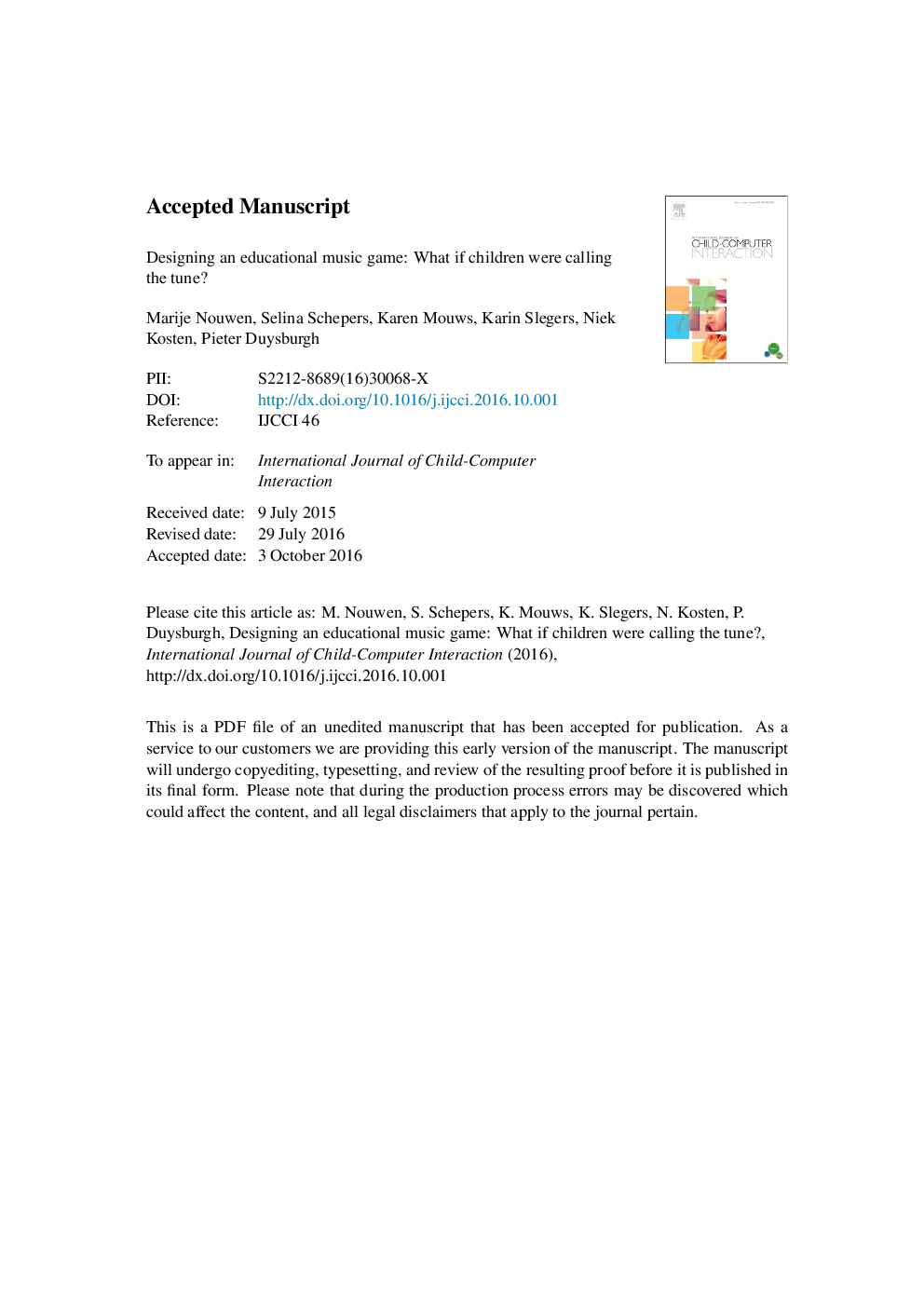| Article ID | Journal | Published Year | Pages | File Type |
|---|---|---|---|---|
| 4931274 | International Journal of Child-Computer Interaction | 2016 | 45 Pages |
Abstract
This paper presents the design process of an educational digital music game that offers primary school children a first experience with music education. A four-phased Participatory Design (PD) trajectory was followed: exploratory interviews, Proxy Technology Assessment using the MemoLine instrument, co-design sessions and evaluation of the first demonstrator. This paper describes how PD principles can be used in obtaining design requirements for educational digital music games for children. The results highlight children's desired game features for an educational music game. These include a clear feedback loop, a reward structure based on performance and persistence, chunking of learning content, an autonomous learning path, room for creativity and providing a 'private' practice space while allowing public performance.
Related Topics
Physical Sciences and Engineering
Computer Science
Human-Computer Interaction
Authors
Marije Nouwen, Selina Schepers, Karen Mouws, Karin Slegers, Niek Kosten, Pieter Duysburgh,
